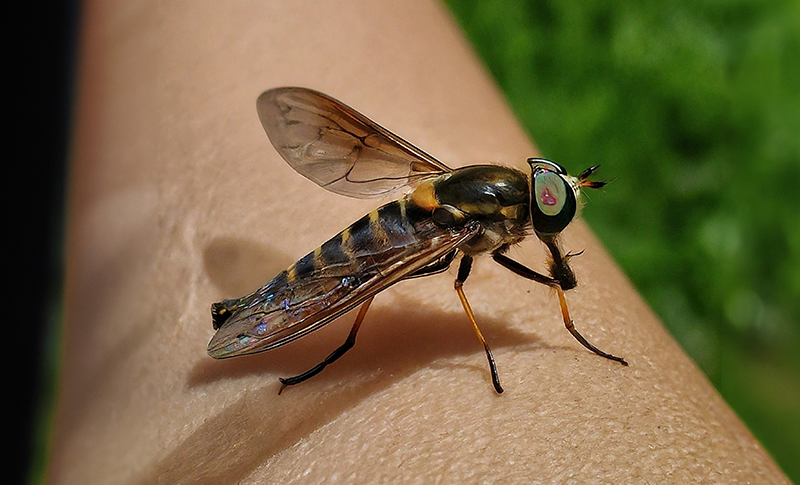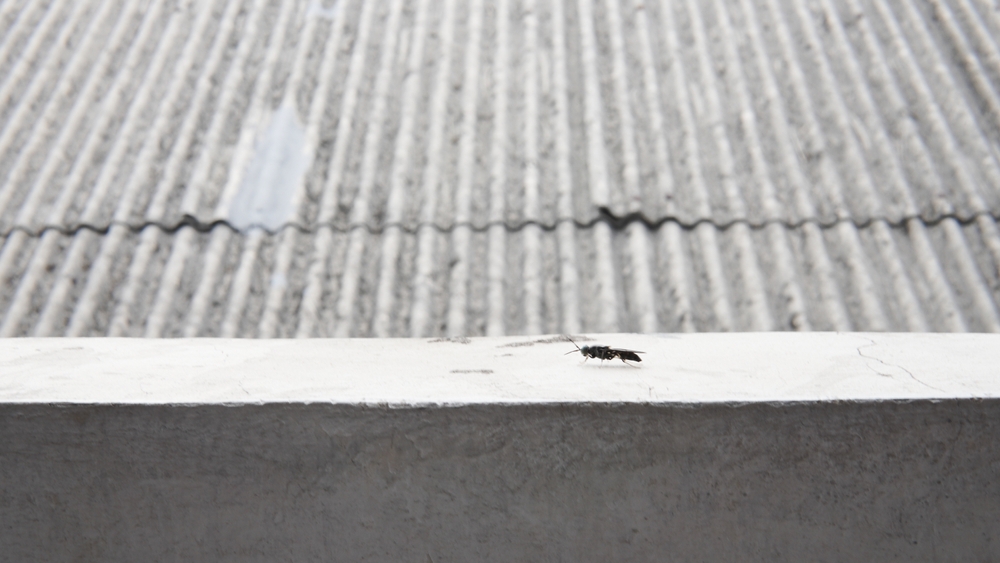The Bioblitz on campus has revealed a rare fly.
Can you imagine? You’ve just got into your stride when you hear a buzzing sound. That is what happened to the new rector Carolien Kroeze. When she went looking for the source of the sound, she discovered a fly. Experts decided it was the Pediculus resourcii, a fly that is attracted to ointment. Kroeze found the insect in a cosmetics jar.
The rector is enthusiastic about the find, especially since it turns out the species is endangered. She affectionately calls the insect her ‘gem’. Professor Liesje Mommer, the initiator of the Bioblitz, is pleased too.
The fly is sensitive and responds quickly to anything fishy, secreting a provocative substance
‘It is yet more proof of how useful our Bioblitz is. Although I should say this is not the first time this particular fly has been spotted in academic ecosystems, but it is under increasing pressure.’
According to Mommer’s colleague and phenologist Arnold van Vliet, the fly in the ointment has a symbiotic relationship with canine species such as the press hound and watchdog, and thrives on new developments. He says it is no coincidence the insect was found in the vicinity of the rector. ‘It is a natural habitat for the fly in the ointment — somewhere the insect will feel at home instantly.’
Contrary to what is often claimed, says Van Vliet, the fly in the ointment is not a parasite. ‘It is more a specific kind of symbiosis. The fly is very sensitive and responds quickly to anything fishy, secreting a provocative substance. That is a sign for the watchdog host to sound the alarm. The insect keeps you on your toes.’
Experts say however that the watchdog and fly in the ointment are both under increasing pressure. Climate change is affecting the academic environment too, as has been seen in Delft and Eindhoven. In Wageningen, a readers’ survey is needed for Resource to confirm the importance of this fly. Van Vliet says the decline is reflected in the counts on waarneming.nl. ‘A fly in the ointment was spotted every week a few decades ago, but only once or twice a month now. It is therefore good to hear our rector plans to cherish this tricky insect.’

 Photo Shutterstock.
Photo Shutterstock. ![[Seriously?] FYI: new uni EN test](https://www.resource-online.nl/app/uploads/2025/03/WEB_DeNeus.png)
![[Seriously?] The Gulf of WUR](https://www.resource-online.nl/app/uploads/2025/02/WEB_DeNeus.png)
